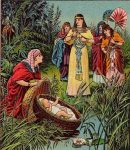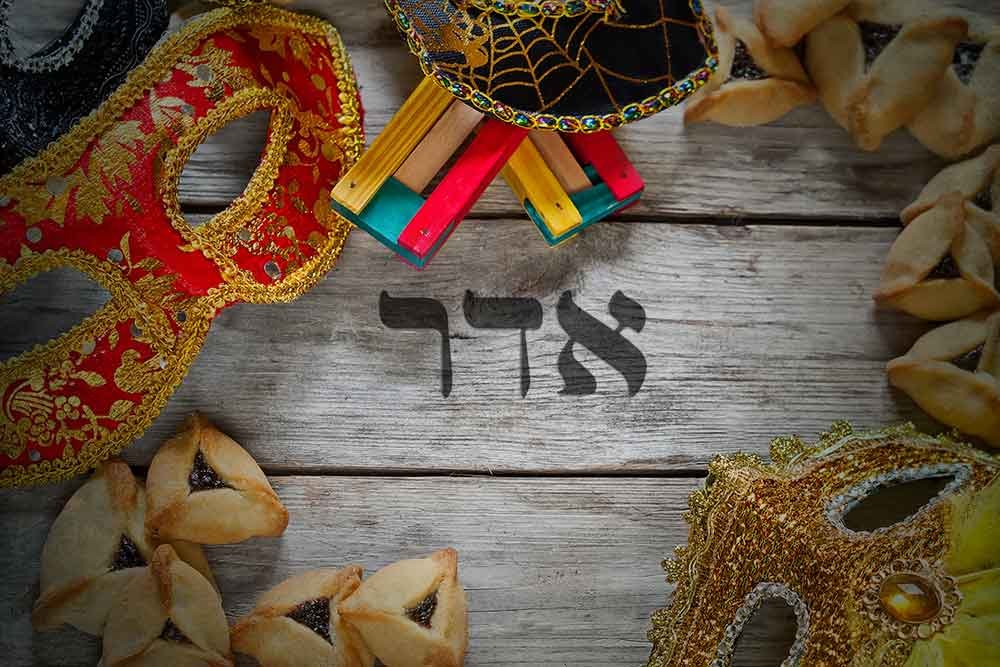SHEMOTH שְׁמוֹת֙ (Names) EXODUS 1:1-6:1
PROPHETS: ISAIAH 27:6-28:13, 29:22-23 | GOSPEL: MATTHEW 2:1-12
By Min. Donald H. Garrett
TORAH:
Ironically, this parshah begins with all the names of the Children of Israel who came to Egypt and how fruitful they were. Yet it quickly changes in verse 8 to a new 👑 of Egypt persecuting them, but this will not be the Pharaoh Mosheh confronts (see Ch. 2, v. 23 and below).
It is here that Mosheh is born and found, in Chapter 2, by Pharaoh’s daughter.

Mosheh grows up as an Egyptian royal, yet still Hebrew. It is his Hebrew heritage that comes out when an Egyptian guard strikes a Hebrew and Mosheh kills the Egyptian. At first, you may think Mosheh is justified by protecting his kinfolk. However, it is very clear that as an Egyptian royal, Mosheh could have simply commanded the guard to stop. Instead, he purposefully strikes him down (murders him) and buries him. Even his fellow Hebrews accuse him of murder now and he runs away to Midian.
In Midian, the daughters of Reuel (later called Jethro) call him an Egyptian, not Hebrew, because he would have still been dressed as an Egyptian. Mosheh marries Zipporah, one of Reuel’s daughters and they have a child named Gershom.
In vese 29, we see that the ruling Pharaoh dies. This would have been Mosheh’s acting grandfather (as he was raised as the son of Pharaoh’s daughter), who would have killed him for killing the Egyptian guard. It is only after his grandfather’s death, that YaHVaH goes to work to save Israel. Mosheh could not have gone back before the death of his grandfather. Another Pharaoh arises in his place, worse than his grandfather.
In Chapter 3, there is the 🔥 bush and the rise of Mosheh. However, Mosheh questions his worthiness and who shall he identify has sent him to save Israel. YaHVaH identifies Himself to Mosheh. A very important promise is given at the end of Chapter 3, Israel will go out with the wealth of Egypt (silver and gold) instead of empty-handed.
Some commentators stop at verse 14 saying that YaHVaH says His Name is I AM WHO I AM (I SHALL BE AS I SHALL BE in the Tanach). But I have always seen this as a rebuke to Mosheh for questioning Him for a name. Yet, YaHVaH does reveal HIS NAME in verse 15, “God said further to Mosheh, ‘So shall you say to the Children of Israel, ‘YaHVaH the God of your forefathers … has dispatched me to you. THIS IS MY NAME forever, …’” Tanach (emphasis mine, with HASHEM in Tanach changed to YaHVaH). If some don’t know, HASHEM means THE NAME. Jews don’t pronounce the TRUE NAME, so they insert either HASHEM or ADONAI where the Tetragrammaton is in Scripture. I prefer to PUT the TRUE NAME back where it is meant to be.
Mosheh even after all of this continues to question his worthiness in Chapter 4, so YaHVaH sends Aaron with Mosheh as a spokesperson. He also tells Mosheh that ALL who sought his life were dead and it was safe to return. Much controversy has been given concerning who YaHVaH was going to kill on the way to Egypt, Mosheh or Mosheh’s son. However, the answer is in verse 23 just above it. “So I say to you, Send out My son that he may serve Me-but you have refused to send him out; behold, I shall kill your firstborn son” Tanach. Most think this is a continuation of verse 22 and the you spoken of is Pharaoh, yet I see that verse 22 only is meant for Pharaoh and verse 23 for Mosheh. Meaning, the person YaHVaH sought to kill was Mosheh’s son because he had not been circumcised to YaHVaH. It was Mosheh’s wife who circumcised the boy to prevent his death and YaHVaH’s anger. First, Mosheh and Aaron have to go to the elders of Israel and convince them. They believe, bow their heads, and prostrate themselves.
In chapter 5, Mosheh is then sent to confront Pharaoh. He rebuffs them questioning who is this YaHVaH and why should I listen to Him. Not only does he rebuff them, but gets angry and increases the hardship upon the Israelites. This causes the Israelites to question Mosheh and lose faith (a recurring theme in all of Exodus), which in turn sends Mosheh into prayer to question YaHVaH. It ends with the first verse of Chapter 6 where YaHVaH tells Mosheh what He will now do to Pharaoh.
(c) Copyright January 2021 Min. Donald H. Garrett and Odon Obadyah Ministries, Inc.
Previous: VAYECHI
Next: VA’EIRA







